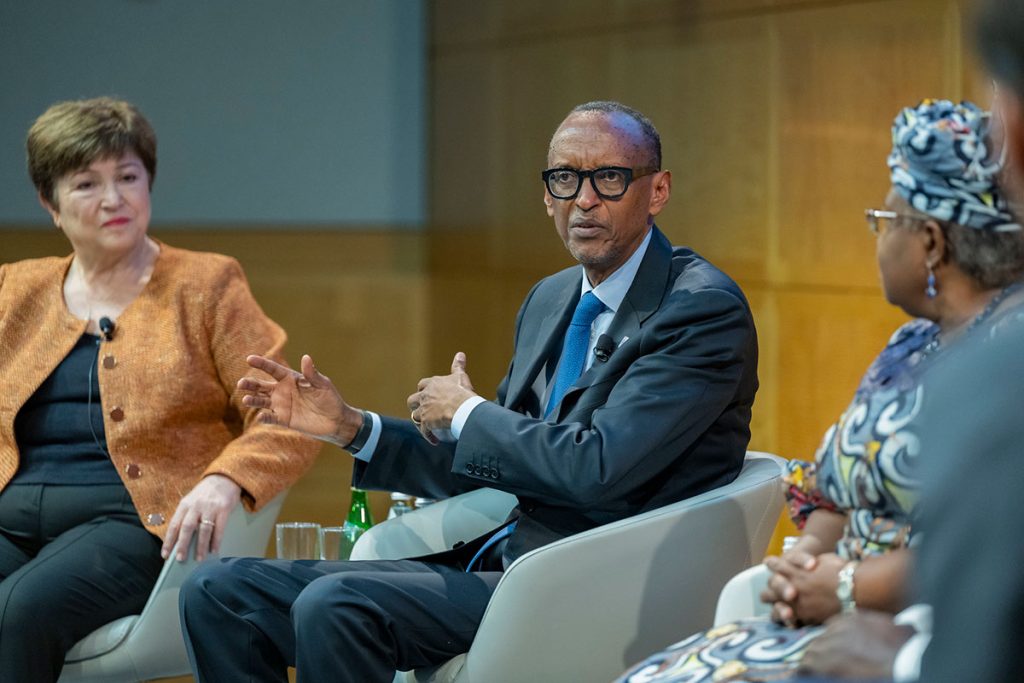The RPF Chairman, President Paul Kagame has highlighted the need for political will in adequately channeling the funds needed to tackle climate change, among other pressing global issues.
He was speaking, during a panel discussion about country experiences with the International Monetary Fund (IMF) Resilience and Sustainability Trust hosted in Washington D.C by the IMF Managing Director, Kristalina Georgieva, on December 13.
He was joined by Prime Minister Mia Mottley of Barbados, International Finance Corporation Managing Director Makhtar Diop, and the Director-General of the World Trade Organization, Ngozi Okonjo-Iweala.
Commenting on whether there should be continued lending of Special Developing Rights (SDRs), the Chairman said that technically there are sound propositions on what should be done, but the hindrance remains the political will to drive it.
“This is what we have to keep talking about but also having cases to prove that with the little we have in hand, it has helped billions of people across the world,” he said.
According to Georgieva, 20 percent of SDRs allocated to economies with strong reserves were directed through the IMF to two vehicles, the Poverty Reduction and Growth Trust as well as the Resilience and Sustainability Trust (RST).
“When we started, we had no idea what the demand was going to be and now we are becoming victims of our success because the demand is very strong, and our board members are concerned about equitable treatment,” she said.
Just recently, Rwanda secured approximately Rwf342 billion loan under the RST to finance projects tackling climate change.
It is accompanied by a 36-month new Policy Coordination Instrument aimed at supporting the government to build on the progress in macroeconomic, fiscal, and financial reforms to deliver more inclusive, resilient, and sustainable growth.
Premier Mottley noted the importance of having discussions around changing the basis on which financing goes to the global south because “it is not working and it cannot work.”
“If we use innovations we see here like the RST, then we can be sweating far more capital out of the multilateral development banks and make them capable of accessing the SDRs, we should look at the creation of climate mitigation trust that looks to the fact that mitigation doesn’t have to be in developing countries but it has to take place on earth.”
If we can use the SDRs to leverage the private sector capital to be able to also unlock the best projects for mitigation to save the earth as a global community, which works for us, she added.
The President noted that there is a lot to do whether individually or together “in a manner of proving the concept of what we are doing and getting the results. If we can do that, then we get encouraged to do even more.”

